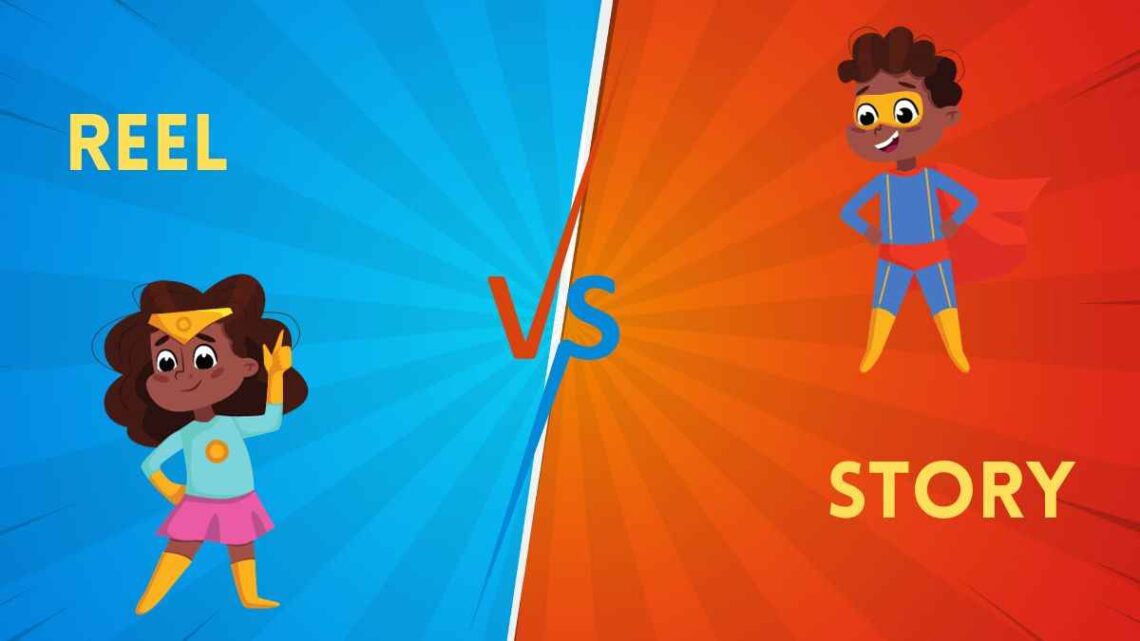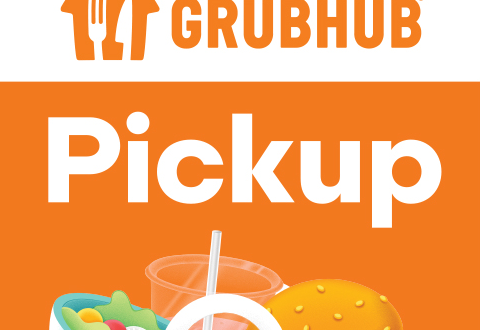Reel vs Story is a confusing argument for many social media users. Both are popular ways to share videos with followers and boost engagement.
Can you choose one?
No!
Despite similarities, Story, and Reels serve different audiences.
They interact with different platform audiences and sales funnel consumers.
It is crucial to understand the distinctions between these two video formats and how to employ them in your social media strategy.
Reels vs Story: Fundamental Technological Distinctions
Let’s start with Reels and Stories’ fundamental technological distinctions.
| Property | Stories | Reels |
| Display | As a Story (see detailed description below) | As Reel & Story (see detailed description below) |
| Format | Video – Photo – Posts from feed | Video |
| Lifespan | 24 hours | Unlimited |
| Length | Up to 15 seconds | Up to 30 seconds |
| Editing | None | Slow down & speed up videos – Trim and align or “stitch” videos together |
| Audio | Add and select the part of a music piece from the music library | You can mention people and hashtags, but the Stories are not directly displayed on the hashtags page. |
| Draft | None | Save to publish later |
| Caption | None | Full caption like a post |
| Gif & Sticker | Ok | Ok |
| Hashtag & Mention | You can mention people and hashtags, and the reels are displayed on the hashtag page. | Like feed posts, people can publicly comment on Reels |
| Placement & Share | You can mention people and hashtags; the reels are displayed on the hashtag page. | On the explore tab (public accounts only) + on your own Reels feed & general Insta feed (shared with your followers like a post)+ as Story (your Reel will be displayed as a Story) |
| Engagement | Private engagement: likes and comments arrive in your direct messaging | Share with your followers, close friends group only, or Individually via messaging. |
How are Reels and Stories Different?
There may be an overlap between reel and story content, but significant differences exist.
Audience: Reels are accessible to a broad audience, enabling the discovery of new creators. Story sharing is limited to a creator’s followers or friends.
Story format: Short movies, reels, pictures, and boomerangs are acceptable. Reels stay on your feed forever, but stories disappear after 24 hours (unless you save them).
Intent: Reels focus on discoverability, whereas stories connect with existing audiences. Simple posts and casual updates are usual. Some systems make creating quizzes, polls, and event reminders more accessible to boost participation.
Some More Differences
1. Display
Stories are temporary statuses posted to your profile photo, unlike Reels. The Story lets you share your day in video, image, or post format for 24 hours.
Reels are creativity-driven single videos that appear in the feed as posts (which you can share as Stories).
Stories
At the top of the screen, a red circle surrounds your followers’ profile pictures when a Story is accessible (image 1). One click starts the video. Stories are 24 hours only.
Your Stories can always be saved as Highlights on your profile. Round thumbnails appear above your profile posts.
Reels
Followers’ reels appear in your feed as posts with the play symbol at the bottom left. One click starts the video.
Reels are also under Explore (magnifying glass).
If you select “Also share to Feed” on your profile, your Reels will remain in the Reels grid (center button) and general grid (left button).
2. Format
This may be the most significant distinction between Reels and Stories. Stories were initially video-only. Instagram soon allowed the sharing written articles and business links (for pro accounts only to start). The report allows for more material sharing than Reels, which are video-only.
3. Lifespan
Even if we pin our Stories on our profile to make them accessible beyond 24 hours, the sharing options will show that this is a factor when deciding between a Reel and a Story based on use cases.
4. Length
In “Display,” you can post as many Stories as you wish daily. A Story can last 15 seconds, and a Reel 30.
Why Reels?
Facebook and Instagram reels are gaining over because Meta is trying to capitalize on TikTok’s fast, looping, single-topic films. As of this writing, TikTok has one billion monthly users and is the most downloaded app ever. No wonder Meta wants in on the action!
What are Reel Dimensions?
Many similarities exist between TikToks and reels. Their aspect ratio and dimensions are vertical (9:16) and full-screen (1080×1920) because of this, and since it’s wise to repurpose content, many TikTok and Instagram creators share the same video content.
How Long Should Reels Be?
Most TikToks and Instagram reels are shorter than ten minutes or 90 seconds. Many of the most popular reels are under 15 seconds. Videos succeed based on views and engagement, not length.
Thus, great short-form videos have hooks and payoffs. The theme draws viewers in, and the fix makes them want to watch, like, comment, and share. The initial three seconds should hook viewers regardless of reel length. More viewers mean more outlets deliver the reel, increasing a creator’s discoverability.
How to Make Reels and Stories?
Today, content comes in countless formats and channels, making your content schedule seem like Mount Everest.
Avoid overthinking! Repurpose and stretch your content in countless ways to convey your tales and reach your audience without spending every waking hour in front of a ring light. We’ve covered social media content reuse extensively. Easy to do, it’s crucial for filling out your content calendar.
If you want your content to work, you must stay up with rapid changes, and reels and tales are dominating vital social platforms. Reels and stories may share content and format, but their audiences and goals differ.
FAQs
Can a reel tell a story?
Yes, a reel can give a tantalizing glimpse of the complete story. However, essential moments must be carefully chosen to express the meaning.
How long should reels be?
Ideal reels are 1–3 minutes long. This maintains the audience’s attention while communicating the message.
Are reels only visual?
Reels are usually connected with cinema and video but can also be used for audio or written content.
Are tales necessarily linear?
Not necessarily. Some stories use flashbacks, parallel plotlines, or unorthodox timeframes.
Can reels tell stories?
Absolutely. A good reel can capture a story’s essence and leave the audience wanting more.
How can I distinguish my reel or story?
Prioritize genuineness. Your reel or tale should reflect your voice, perspective, and experiences—audiences like this sincerity.
Conclusion
Reels and stories have their places in storytelling. A spin wows with its visuals, but a tale grips with its plot. Understanding their strengths helps you use them successfully to reach your audience.





